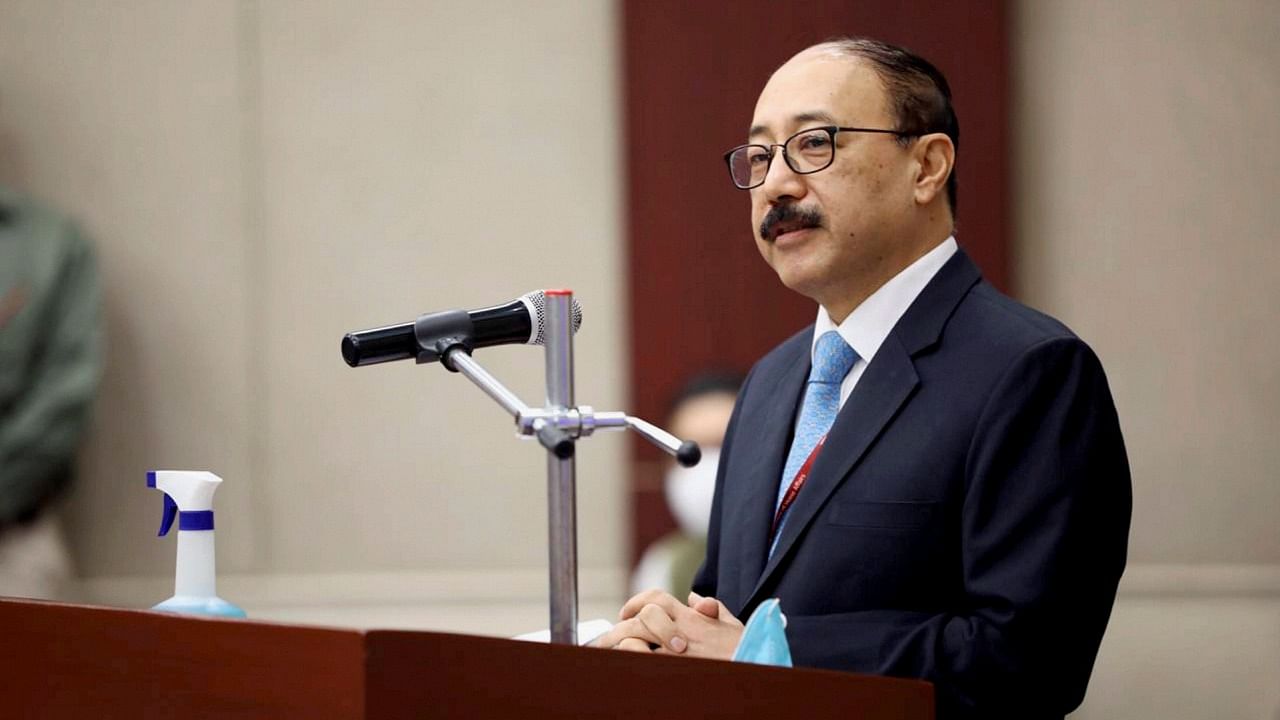
With the military stand-off along Line of Actual Control (LAC) between the two nations not yet completely resolved, India on Monday said that its relations with China will depend on mutual respect, sensitivity and interests.
New Delhi made it clear to Beijing that peace and tranquillity in border areas was essential for development of the bilateral relations between the two nations, Foreign Secretary Harsh Vardhan Shringla said, speaking at the 6th J P Morgan “India Investor Summit”.
“Development of India-China relationship can only be based on ‘three mutuals’ – mutual respect, mutual sensitivity and mutual interests,” the Foreign Secretary said – just days after External Affairs Minister S Jaishankar told his counterpart in the Chinese Government Wang Yi that the relations between the two neighbours would determine the fate of solidarity in Asia.
Jaishankar also told Wang during a meeting in Dushanbe on September 16 that China should avoid viewing its bilateral relations with India from the perspective of its ties with third countries.
Also Read | China says it agrees with Jaishankar; says Sino-India ties have their own 'intrinsic logic'
Shringla on Monday said that an essential basis for the largely positive trajectory of India-China relations during the last 40 years had been the agreement between the two countries to ensure peace and tranquillity in the border areas. But the Chinese People’s Liberation Army’s attempt to alter the status quo along the LAC – the de facto boundary between the two nations in the western sector – seriously disturbed peace and tranquillity in the border areas. “These acts are in violation of our bilateral agreements and have inevitably impacted other aspects of the bilateral relationship,” added the Foreign Secretary.
The military stand-off started in April-May 2020 after the Chinese PLA deployed a large number of soldiers along the LAC in an apparent bid to push the disputed boundary westward and the Indian Army too had to respond by mobilizing a large number of troops to eastern Ladakh. A series of talks between Jaishankar and Wang as well as between the senior diplomats and the military commanders over the past several months succeeded in mutual withdrawal of troops from the northern and the southern banks of Pangong Tso (lake) in February and from the Gogra Post a.k.a ‘Patrol Point 17 A’ on the LAC in August.
The stand-off however is still continuing on several face-off points along the LAC.
The bilateral relations between New Delhi and Beijing hit a new low over the one-and-a-half-year-long stand-off.
New Delhi has been rejecting Beijing’s call for restoring the normalcy in India-China bilateral engagements, irrespective of the continuing stand-off.
Check out latest DH videos here
